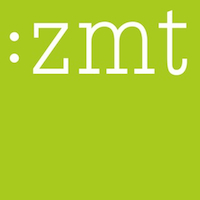| Pages in topic: < [1 2] | Difference between MTPE and proofreading Thread poster: Mafe Martinez
|
|---|
| Splitting hairs again | Mar 27, 2024 |
What is meant by revising, correcting, checking, editing, proofreading and so on clearly varies from customer to customer and job to job, so just charge by the hour for whatever it is they want. MTPE should be no different.
| | | | | my take on this | Mar 27, 2024 |
Mafe Martinez wrote:
Lieven Malaise wrote:
This seems like a way to make you do MTPE or conventional editing for the price of proofreading
I think that's exactly what's happening here! Is this how agencies are operating now?
It has happened to me once that I received a translation for reviewing but discovered that the so-called 100% matches were in fact machine translations. I think we are gradually going to see more of MT being passed as human work and the corresponding attempts to get lower prices for having it properly reviewed (or whatever term is being used). Reviewing MT requires much more time than reviewing a proper human translation.
In EU translations, we typically work with a workflow that seems similar to your current situation:
1. Machine translation is generated.
2. A translator reviews it and corrects it (post-editing).
3. A reviewer reviews the post-edited translation (which at this stage generally still contains plenty of errors remaining from the machine translation due to the stress/bad pay currently in force for translators).
This last step (which seems to be similar to your current task) is usually charged for by the hour. To calculate the time required, agencies generally assume about 1 hour per 900 words but for a perfect result you'd probably process around 600-800 words per hour. (EU translations, however, are notoriously complicated and probably require more time than many other types of translation, and, as I mentioned, the output from the translator step is usually deficient.)
In your case, if the translator has already post-edited the machine translation properly, I would perhaps divide the volume with 1000 and multiply by your hourly fee, and see how it goes.
Otherwise, if the machine translation has not been properly post-edited, you would need to charge for post-editing. In my experience, there are some cases where post-editing can be done somewhat quicker than pure translations, but mostly it doesn't imply any time savings if done correctly.
If the client insists on a discount for post-editing (30 or 50% seems standard), you should apply a corresponding deduction on the processing time.
[Edited at 2024-03-27 16:39 GMT]
| | | | | MTPE - No thank you, and a few points on proofreading | Mar 27, 2024 |
Mafe Martinez wrote:
How do you define the boundary between proofreading and MTPE? I've been requested to do a proofreading task, but the instructions are to review a text that a translator delivered with automatic translations and to deliver a natural, well-localized, fluent, and consistent target. This is going to require a lot of rewriting, so it seems to me that it's more like MTPE, but the distinction is unclear to me. It's the first time I've been requested to do a task like this; I usually handle translations.
I just have to say something.
It should be called editing, or reviewing and revising because that's what most agencies expect us to do when they send us a "proofreading" job.
Yes, proofreading should be reviewing of a monolingual text only. But I don't remember ever having done just that with a translated text. I want to see the original text because I cannot trust that everything was translated correctly. I am not dealing with an original text in that language. Mistakes are always possible. Questions might arise too.
A quick review of the original text and the translation precedes my agreeing to a price for proofreading, editing, reviewing or whatever else you want to call it.
If the client understands proofreading the translated text as just checking for grammatical errors, ensuring consistency of terms and great style, he/she doesn't really need a translator. He/she just needs a proofreader that proofreads in that language. Not saying you can't do the job if you're a translator. But you understand what I am saying. But the client probably needs a translator because the original text is in another language.
In any case, most agencies expect you to point to mistakes made by the translator and fix them. That means you have to compare the translation with the original text.
On the topic of AI, I will not proofread or review or edit anything that was created by AI only. (MTPE)
If the text was created by an expert translator who was using AI himself, I will also do a quick review of the original and translated text before agreeing to a price.
So whatever the client calls it, I suggest you review the OT and the translation and decide what it takes to fix it.
[Edited at 2024-03-27 23:14 GMT]
| | | | Daryo
United Kingdom
Local time: 20:14
Serbian to English
+ ...
Lieven Malaise wrote:
Daryo wrote:
No ways.
Maybe in some ideal world, not in this one. To do anything with a translation, you do need the source text, no ways around it. REAL "proofreading" [not the twisted meaning added later] used to be done with "proofs" i.e. texts made ready for printing in a printing shop and essentially meant comparing the "printing proofs" with a handwritten or typed text **that is FOR SURE the "correct version"**. How on earth are you going to be sure that you know what is "the correct version" of a translation without the source text??
I have several clients who ask me to do a proofreading once in a while, and they only send me the translation. It's a real service, you know.
Whether it's a good idea to only proofread a translation is irrelevant. It's simply up to the client. Besides, sometimes proofreading is an additional step after conventional editing. [Bijgewerkt op 2024-03-27 10:37 GMT]
Leading a group in unknown territory without bothering with maps, or even a compass, is also "a real service, you know"... So I've heard. Surely, when the group gets hopelessly lost, they will be thrilled to learn that "maps and a compass" is something "irrelevant"?
To go back to the point of this whole thread, calling "proofreading" what agency asked the OP to do is stretching the definition of "proofreading" ways beyond breaking point.
| | |
|
|
|
Lieven Malaise
Belgium
Local time: 21:14
Member (2020)
French to Dutch
+ ...
| Not the point | Mar 28, 2024 |
Daryo wrote:
Leading a group in unknown territory without bothering with maps, or even a compass, is also "a real service, you know"... So I've heard. Surely, when the group gets hopelessly lost, they will be thrilled to learn that "maps and a compass" is something "irrelevant"?
You are missing the point. If a client wishes that his text is checked for grammar and spelling only, and he pays for that exact service, then that is what he will get. Considerations like "it's not a good idea, you shoud be asking for a full editing job" are the responsibility of the client. If you are asked to just proofread a translation, you can never be held responsible for translation errors, so what's your problem?
Imagine me asking a translator to just proofread a translated text (for whatever reason I may have) and then receiving a reply stating that he or she refuses to do that because it wouldn't be a good idea. It's like ordering a black coffee in a coffee shop and then being told that you can't get it because a proper coffee would have to be one with milk in it.
[Bijgewerkt op 2024-03-28 07:58 GMT]
| | | | jyuan_us 
United States
Local time: 15:14
Member (2005)
English to Chinese
+ ...
| It is hard to have across-the-board definitions for these terms. They are all client-specific | Mar 28, 2024 |
For a few of my clients, proofreading is another name of "second-round editing." The proofreaders are always required to review translations that have been edited. The editor is the second "linguist" on the team to work on a file, and the proofreader is the 3rd one. Their jobs are the same except that the former presumably has a heavier burden because more changes are expected. The hourly output expected of the proofreader is twice or three times that of the editor.
[Edited at 2024-03-28... See more For a few of my clients, proofreading is another name of "second-round editing." The proofreaders are always required to review translations that have been edited. The editor is the second "linguist" on the team to work on a file, and the proofreader is the 3rd one. Their jobs are the same except that the former presumably has a heavier burden because more changes are expected. The hourly output expected of the proofreader is twice or three times that of the editor.
[Edited at 2024-03-28 21:24 GMT] ▲ Collapse
| | | | | The client is not in charge | Mar 28, 2024 |
Lieven Malaise wrote:
You are missing the point. If a client wishes that his text is checked for grammar and spelling only, and he pays for that exact service, then that is what he will get. Considerations like "it's not a good idea, you shoud be asking for a full editing job" are the responsibility of the client. If you are asked to just proofread a translation, you can never be held responsible for translation errors, so what's your problem?
Imagine me asking a translator to just proofread a translated text (for whatever reason I may have) and then receiving a reply stating that he or she refuses to do that because it wouldn't be a good idea. It's like ordering a black coffee in a coffee shop and then being told that you can't get it because a proper coffee would have to be one with milk in it.
[Bijgewerkt op 2024-03-28 07:58 GMT]
But I did just that only last week. As a professional you cannot let a text go out with errors.
I was asked to do a layout check of an annual report and noticed lots of bad English had been added. Client said never mind. I said you need to mind. They backed down.
For me, that’s part of the service.
| | | | Lieven Malaise
Belgium
Local time: 21:14
Member (2020)
French to Dutch
+ ...
| Layout check | Mar 28, 2024 |
Christopher Schröder wrote:
I was asked to do a layout check of an annual report and noticed lots of bad English had been added. Client said never mind. I said you need to mind. They backed down.
I was talking about a spelling and grammar check, so I'm not sure how your case fits in. But in your case I also would point out to the client that mistakes have been introduced, but I wouldn't suggest anything else. I don't consider my clients to be stupid. If they need an extra service they can ask for it. I like to keep things as neutral as possible.
| | |
|
|
|
| Difficult to distinguish between MTPE and proofreading | Mar 30, 2024 |
I must say it is difficult to distinguish between the two, but from my experience, I always request the source text and the translated text.
In case of proofreading, if you are only looking at the target text, there are times when you cannot detect mistakes or errors.
One example may be a direction on how to get to a certain place, where the source says "Turn left at the corner of so-and-so street and if you walk about two blocks, you will see a building with an America... See more I must say it is difficult to distinguish between the two, but from my experience, I always request the source text and the translated text.
In case of proofreading, if you are only looking at the target text, there are times when you cannot detect mistakes or errors.
One example may be a direction on how to get to a certain place, where the source says "Turn left at the corner of so-and-so street and if you walk about two blocks, you will see a building with an American flag sticking out".
But what if this was mistranslated as "Turn RIGHT at the corner of so-and-so street"?
If you only proofread the target text, you wouldn't notice the error, unless you happen to live in that area and know the area very well.
Also, as regards to 100% matches which Thomas pointed out, I completely agree with him.
I had this incident where I was translating a German manual into Japanese using Trados about a certain machine, and on page 2, there was a page which said "Inhalt", which means "Table of Contents", but later on page 50, this word "Inhalt" came up as the contents of the box which the machine was in. The box contained the machine itself, electrical cords, a screen and a few other things, but according to Trados, it automatically translated the word "Inhalt" as not "content" of the box but as "Table of Contents" because it is a 100% match which occurred on page 2 of the manual. The term "Inhalt" can be translated as "Table of Contents" and "contents" of a certain product which comes in boxes or even in bottles. I guess this is one disadvantage of using a CAT tool. ▲ Collapse
| | | | Lieven Malaise
Belgium
Local time: 21:14
Member (2020)
French to Dutch
+ ...
| About bad MT post-editing | Mar 30, 2024 |
Thomas Johansson wrote:
3. A reviewer reviews the post-edited translation (which at this stage generally still contains plenty of errors remaining from the machine translation due to the stress/bad pay currently in force for translators).
I really wonder why people seem to consider this as a given fact. Bad machine translation post-editing shouldn't be acceptable, never, just like bad conventional translation shouldn't be acceptable. If you offer MTPE services and you aren't capable of delivering the desired quality, then you either shouldn't do it, or you should raise your rate to the point that you can deliver quality.
If I review an MTPE job and it is bad, then my client will know all about it with the necessary details. And I expect nothing else from colleagues who review my MTPE jobs, just like I expect nothing else for conventional translation.
Bad MTPE work isn't the fault of MT engines or low rates, it's the fault of bad or clueless translators/post-editors.
[Bijgewerkt op 2024-03-30 10:14 GMT]
| | | | Tony Keily
Local time: 21:14
Italian to English
+ ...
| There are standard definitions for these terms | Apr 2, 2024 |
Under EN 15038/ISO 17100 there are standard definitions of the terms debated above. Most agencies boast use of these standards but ignore them in practice, especially where terminology is concerned. Proofreading has nothing to do with translation but is the checking typescripts and printer's proofs prior to publication, using the symbols specified in ISO 5776. But applying the "ah you know what I mean" principle, proofreading/proofing has been made to mean revision/reviewing, although this begs ... See more Under EN 15038/ISO 17100 there are standard definitions of the terms debated above. Most agencies boast use of these standards but ignore them in practice, especially where terminology is concerned. Proofreading has nothing to do with translation but is the checking typescripts and printer's proofs prior to publication, using the symbols specified in ISO 5776. But applying the "ah you know what I mean" principle, proofreading/proofing has been made to mean revision/reviewing, although this begs the obvious question of what term to use for 'real' proofreading.
We only use a handful of terms to talk about our work, so how can we be taken seriously if we use ad hoc interchangeable terms to refer to it? It's a bit like going to the dentist and accepting that basically filling, extraction, whitening and bridgework are just overlapping variations of some vague 'rummaging in your mouth' activity.
From my limited experience with MTPE, things are even worse in this field. MTPE has a legitimate place in our profession, but the 'advance of AI' narrative has led to a dumbing down of work standards. The less enlightened punters are now convinced that translation is MT plus a little tinkering around by somebody in the know.
So things go like this:
1) The punters shop around and soon find an agency willing to cater to this wrong-headed notion.
2) Projects are farmed out to young and inexperienced PMs working remotely, who hit us with circular emails filled with smiling and winking emojis.
3) We are offered a document fed raw MT output and asked to 'proof' it to produce a target document for less than half of the price of translation, although any fool knows that MT in many if not most cases doesn't significantly reduce the work involved in translation.
Few if any of the agencies seem to realise that MTPE is subject to its own standard, ISO 18587. They don't know (or don't want to know) that the first steps in the MT process are assessment of whether a project is suitable for MT at all and, if it is suitable, preparation of the material for MT by pre-editing.
I've received raw, unformatted PDF OCR output, fed through DeePL to produce some kind of gibberish to be 'proofed'.
But then I've also recently seen agencies with decades of experience fire 90% of their in-house staff in just a few months and replace them with late adolescents working from home on PayPaled commissions. So what can you expect? ▲ Collapse
| | | | | Pages in topic: < [1 2] | To report site rules violations or get help, contact a site moderator: You can also contact site staff by submitting a support request » Difference between MTPE and proofreading | Trados Studio 2022 Freelance | The leading translation software used by over 270,000 translators.
Designed with your feedback in mind, Trados Studio 2022 delivers an unrivalled, powerful desktop
and cloud solution, empowering you to work in the most efficient and cost-effective way.
More info » |
| | Wordfast Pro | Translation Memory Software for Any Platform
Exclusive discount for ProZ.com users!
Save over 13% when purchasing Wordfast Pro through ProZ.com. Wordfast is the world's #1 provider of platform-independent Translation Memory software. Consistently ranked the most user-friendly and highest value
Buy now! » |
|
| | | | X Sign in to your ProZ.com account... | | | | | |






















